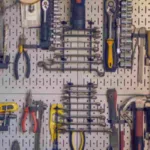In today’s world, where the cost of living is constantly on the rise, owning a car can be a significant financial burden. Not only do you have to worry about the initial cost of purchasing a vehicle, but you also have to factor in ongoing expenses such as fuel, insurance, and maintenance. While some of these expenses are unavoidable, there are steps you can take to reduce your car maintenance costs and prevent major repairs down the road.
1. Schedule Regular Oil Changes
One of the most important things you can do to extend the life of your car’s engine is to get regular oil changes. Oil helps to lubricate and cool the engine, and it also helps to prevent corrosion. Over time, oil breaks down and becomes less effective, so it’s important to change it according to your car’s manufacturer’s recommendations. Most cars require an oil change every 3,000 to 5,000 miles.
2. Check Tire Pressure Regularly
Proper tire pressure is essential for both safety and fuel economy. Underinflated tires can cause uneven wear, reduce traction, and increase your risk of a blowout. Overinflated tires can make your car ride harsher and reduce fuel efficiency. Check your tire pressure monthly, and make sure to inflate them to the recommended pressure level, which is usually listed on a sticker on the driver’s side door jamb.
3. Rotate Your Tires
Tire rotation helps to ensure that all of your tires wear evenly. This is important because uneven tire wear can lead to a number of problems, including vibrations, pulling, and reduced fuel economy. Most cars should have their tires rotated every 5,000 to 7,500 miles.
4. Keep Fluids Topped Up
In addition to engine oil, your car has a number of other fluids that need to be kept topped up. These include coolant, brake fluid, transmission fluid, and power steering fluid. Check your car’s owner’s manual to see how often these fluids need to be checked and replaced.
5. Replace Air Filters
Your car’s air filters help to keep dirt and debris out of the engine and the passenger compartment. Over time, air filters can become clogged, which can reduce fuel efficiency and engine performance. Replace your car’s air filters according to your car’s manufacturer’s recommendations.
6. Get Regular Tune-Ups
A regular tune-up is a good way to keep your car running smoothly and efficiently. During a tune-up, your mechanic will check and replace a number of parts, including spark plugs, filters, and ignition components. They will also check your car’s fluids and make sure that all of its systems are functioning properly.
7. Address Warning Lights
If you see a warning light come on on your dashboard, don’t ignore it. Warning lights are designed to alert you to potential problems with your car. Take your car to a mechanic as soon as possible to have the problem diagnosed and repaired.
8. Drive Carefully
The way you drive can have a big impact on the longevity of your car. Avoid hard acceleration and braking, and try to avoid driving over potholes and other road hazards.
By following these tips, you can help prevent major repair costs and extend the life of your car.










